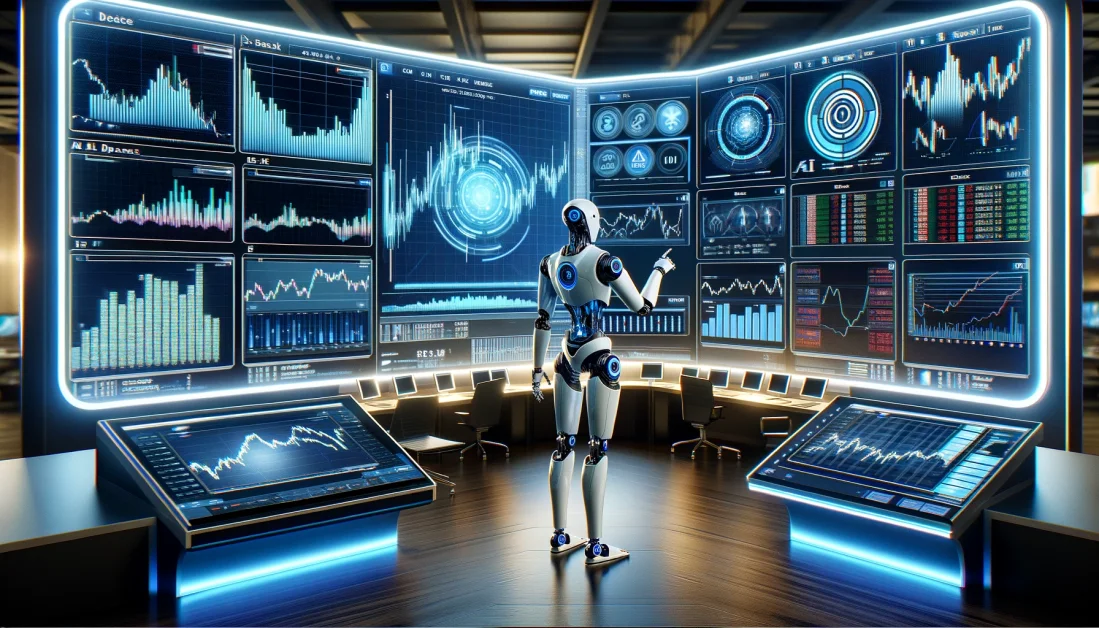
31 janvier 2024
In recent years, the intersection of artificial intelligence (AI) and the stock market has become a focal point of discussion. As AI technologies continue to advance, their impact on the financial landscape has been profound, influencing trading strategies, market analysis, and overall investment decisions. This article explores the intricate relationship between the stock market and AI over short, medium, and long-term horizons.
Short-Term Dynamics:
Algorithmic Trading and High-Frequency Trading (HFT): In the short term, AI's most noticeable impact is in the realm of algorithmic and high-frequency trading. Machine learning algorithms analyze vast amounts of data at lightning speed, making split-second decisions that can lead to significant gains or losses. The ability to react swiftly to market changes and execute trades in milliseconds has reshaped the landscape of short-term trading.
Sentiment Analysis and News Trading: AI also plays a crucial role in sentiment analysis, scanning news articles, social media, and other sources to gauge market sentiment. Traders leverage this information for short-term decisions, reacting to breaking news and market rumors. This dynamic use of AI in interpreting and responding to real-time information has added a new layer of complexity to short-term trading strategies.
Medium-Term Trends:
Predictive Analytics and Pattern Recognition: As we extend our focus to the medium term, the role of AI becomes more pronounced in predictive analytics. Machine learning models can identify patterns and trends within historical data, assisting investors in making informed decisions over weeks, months, or quarters. This capability is particularly valuable for identifying emerging market trends and sector rotations.
Portfolio Optimization and Risk Management: AI's medium-term influence is also evident in portfolio optimization and risk management. Advanced algorithms assist in constructing well-diversified portfolios, considering risk factors and optimizing returns. This application of AI contributes to a more sophisticated and data-driven approach to medium-term investment strategies.
Long-Term Transformations:
Strategic Investment and Robo-Advisors: Looking towards the long term, AI is reshaping strategic investment approaches. Robo-advisors, powered by sophisticated AI algorithms, offer automated, low-cost investment management. These platforms analyze long-term market trends, risk profiles, and investor goals to construct and manage portfolios, democratizing access to strategic, long-term investing.
Market Evolution and Structural Changes: AI's impact on the stock market extends beyond individual strategies, influencing the market's overall structure. The evolution of decentralized finance (DeFi) and the integration of blockchain technology are examples of long-term trends influenced by AI. As these technologies mature, they could redefine how assets are traded and managed in the long term.
In conclusion, the relationship between the stock market and artificial intelligence is dynamic and multifaceted. From revolutionizing short-term trading to optimizing long-term investment strategies, AI continues to be a driving force in reshaping the financial landscape. As technology advances, market participants must adapt to these changes, embracing the opportunities and challenges presented by the evolving symbiosis of AI and the stock market.